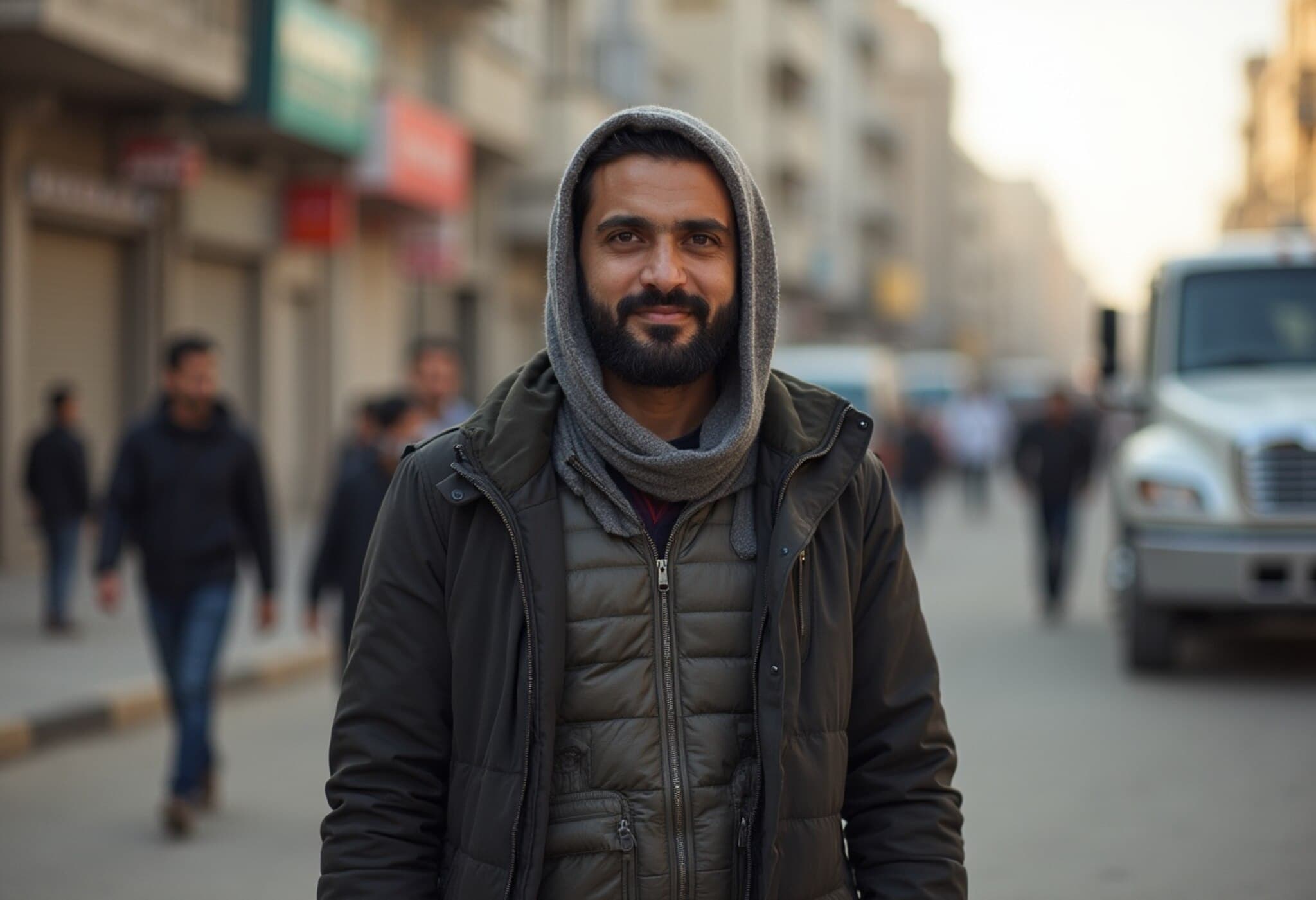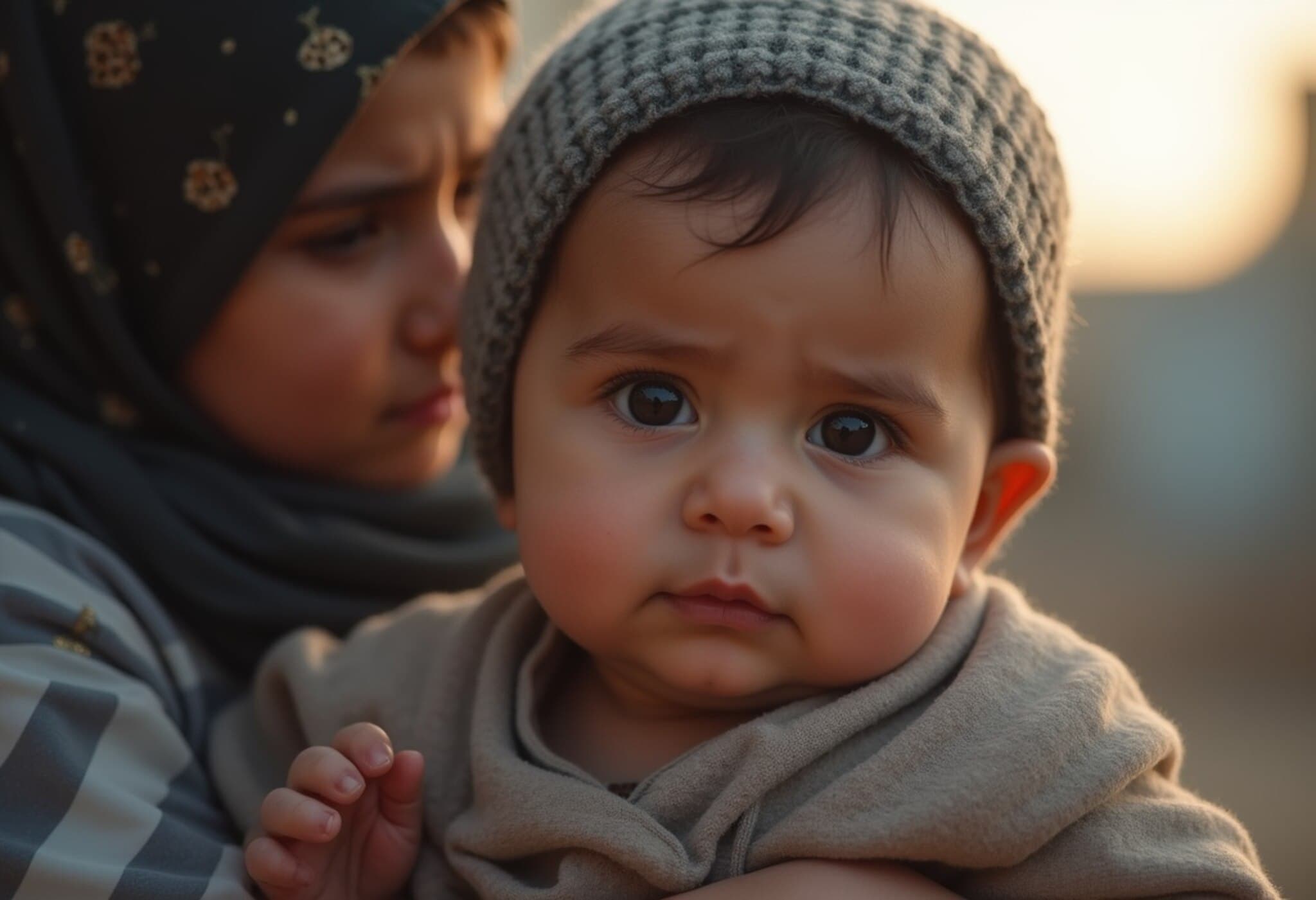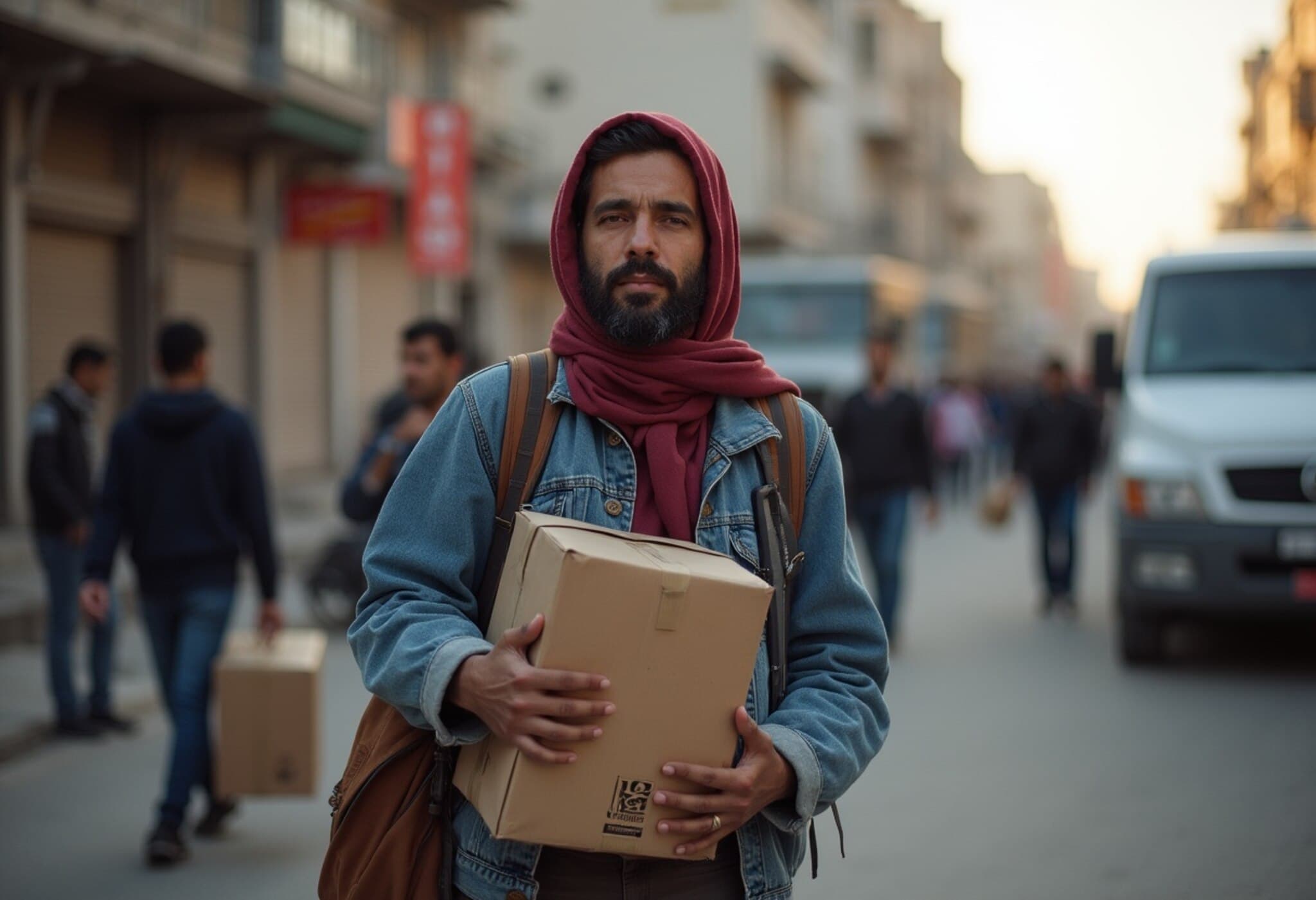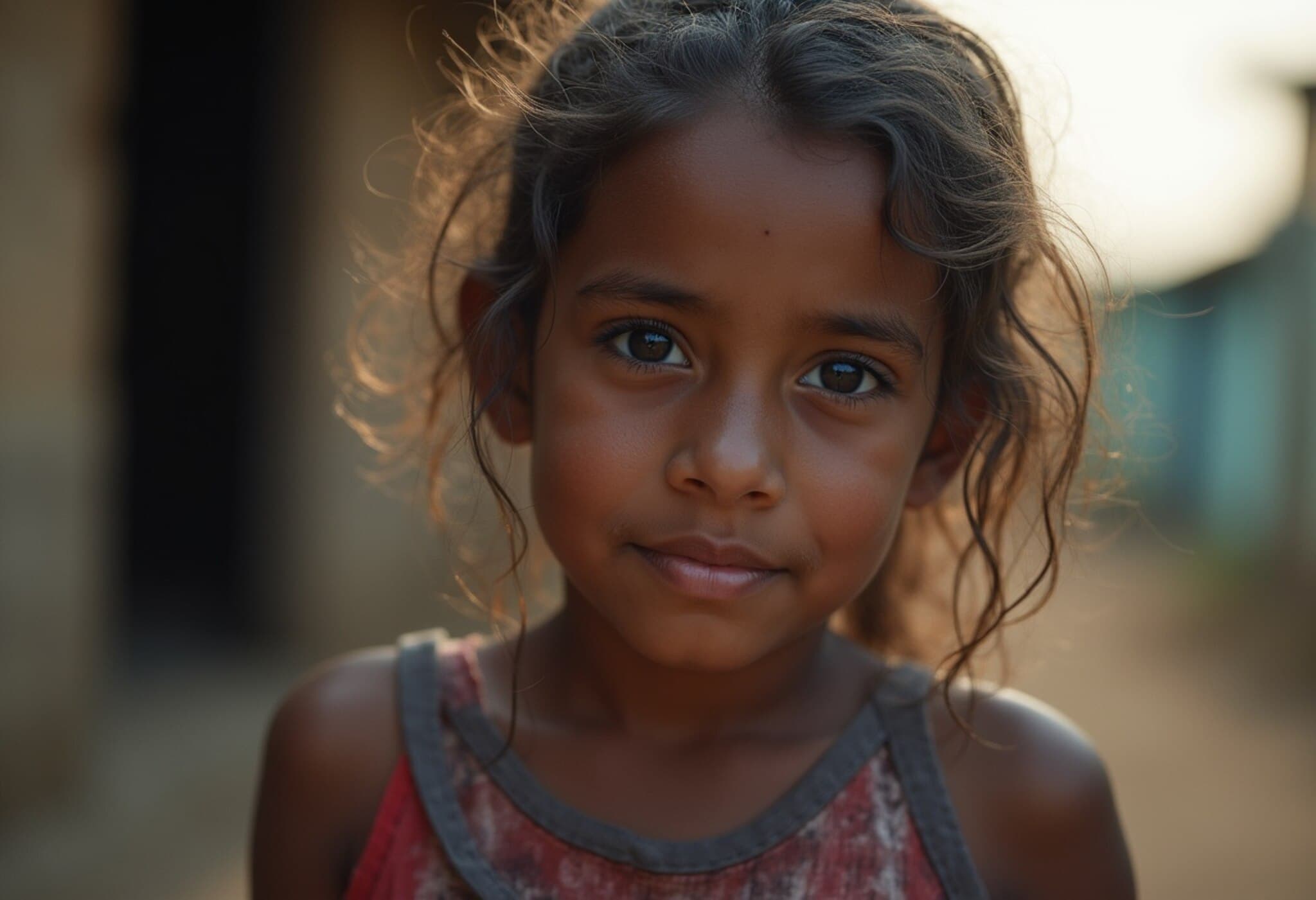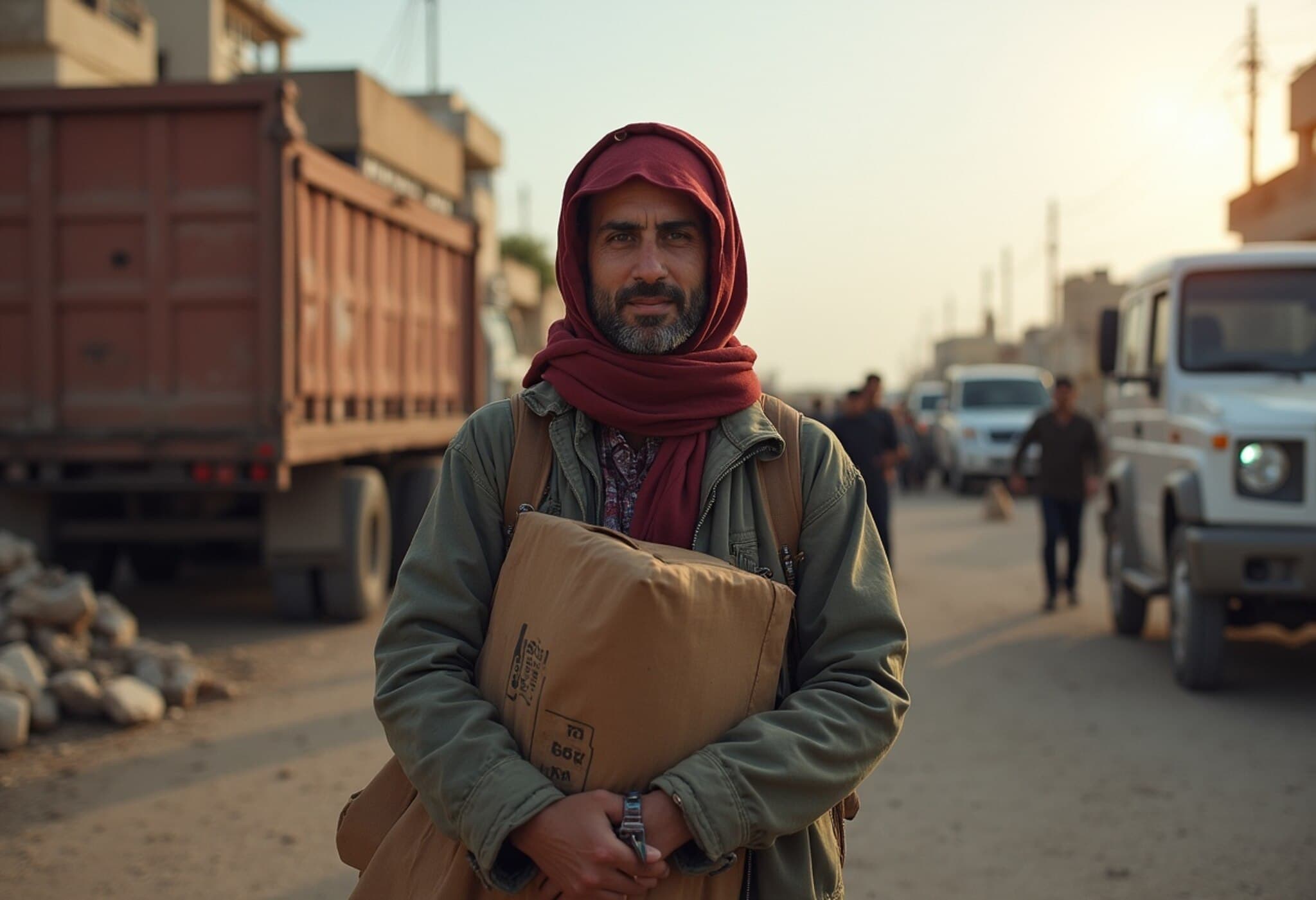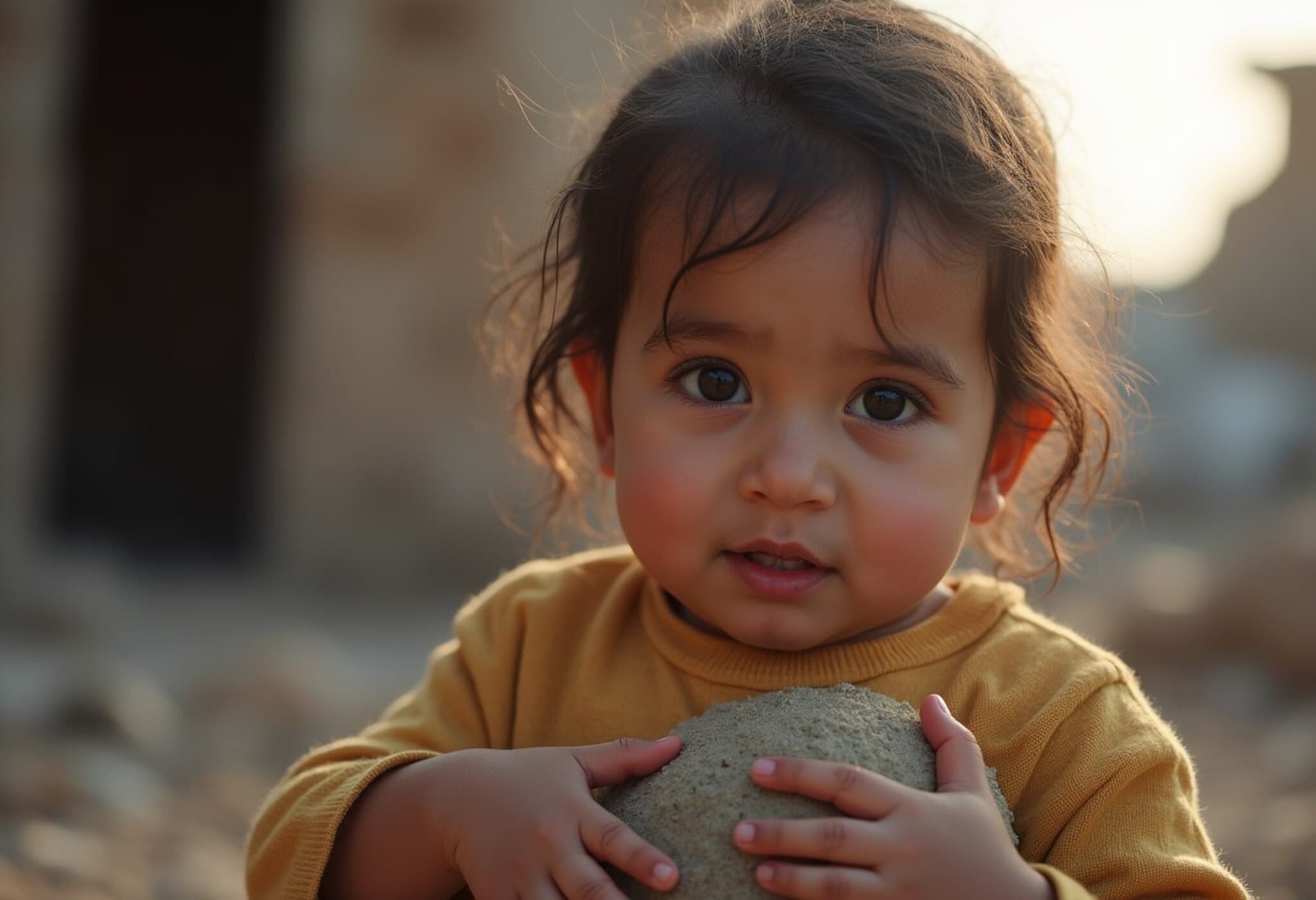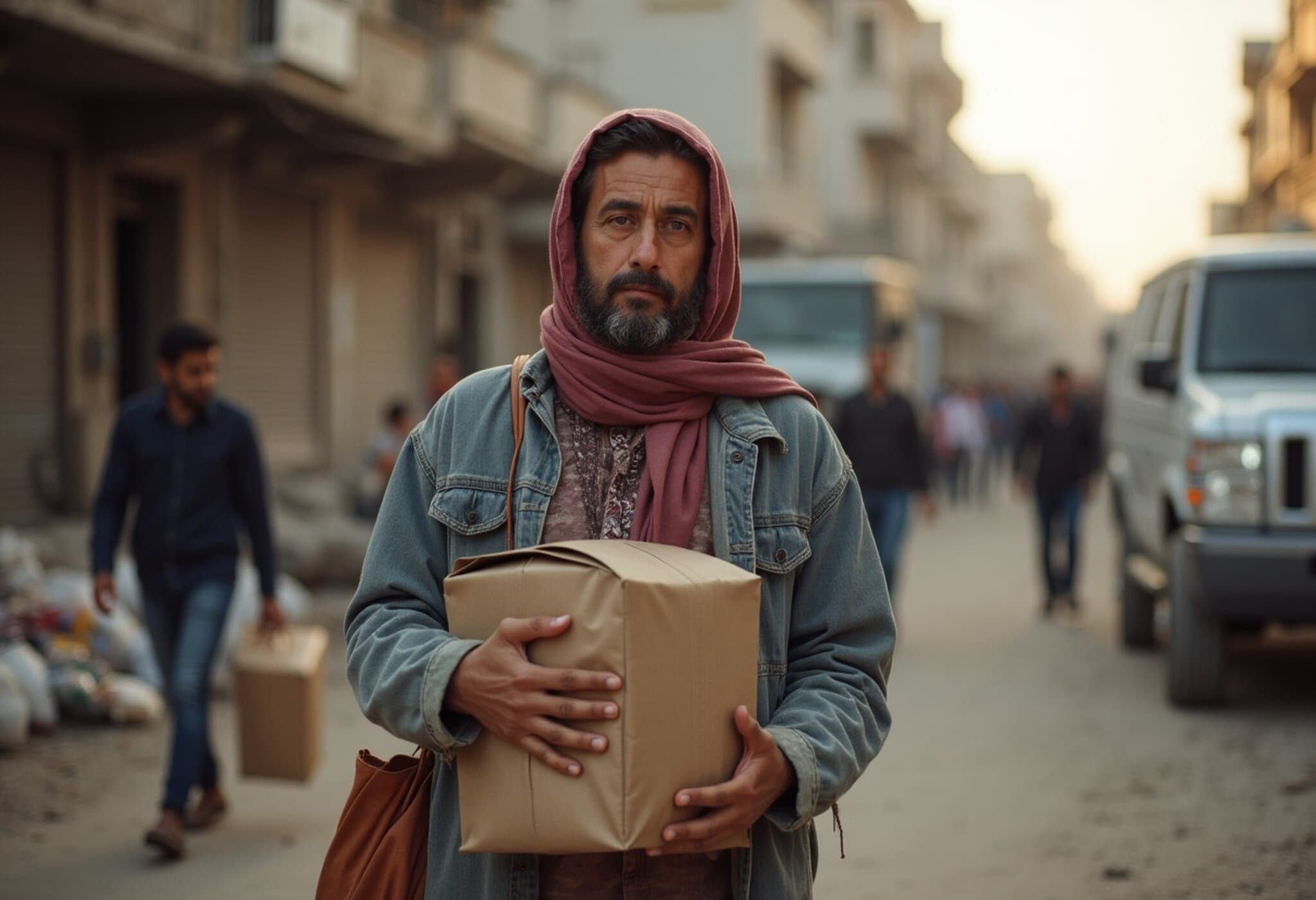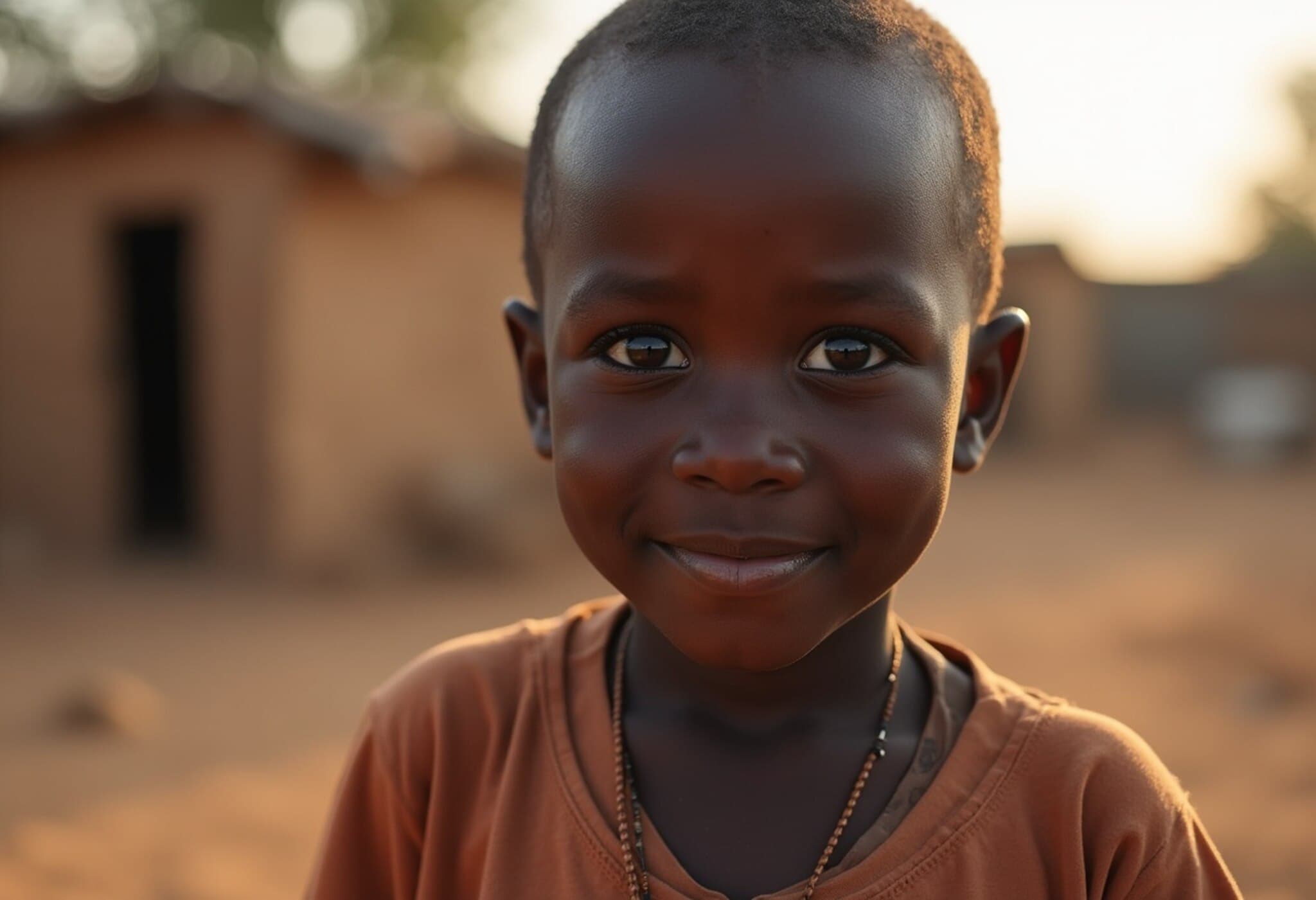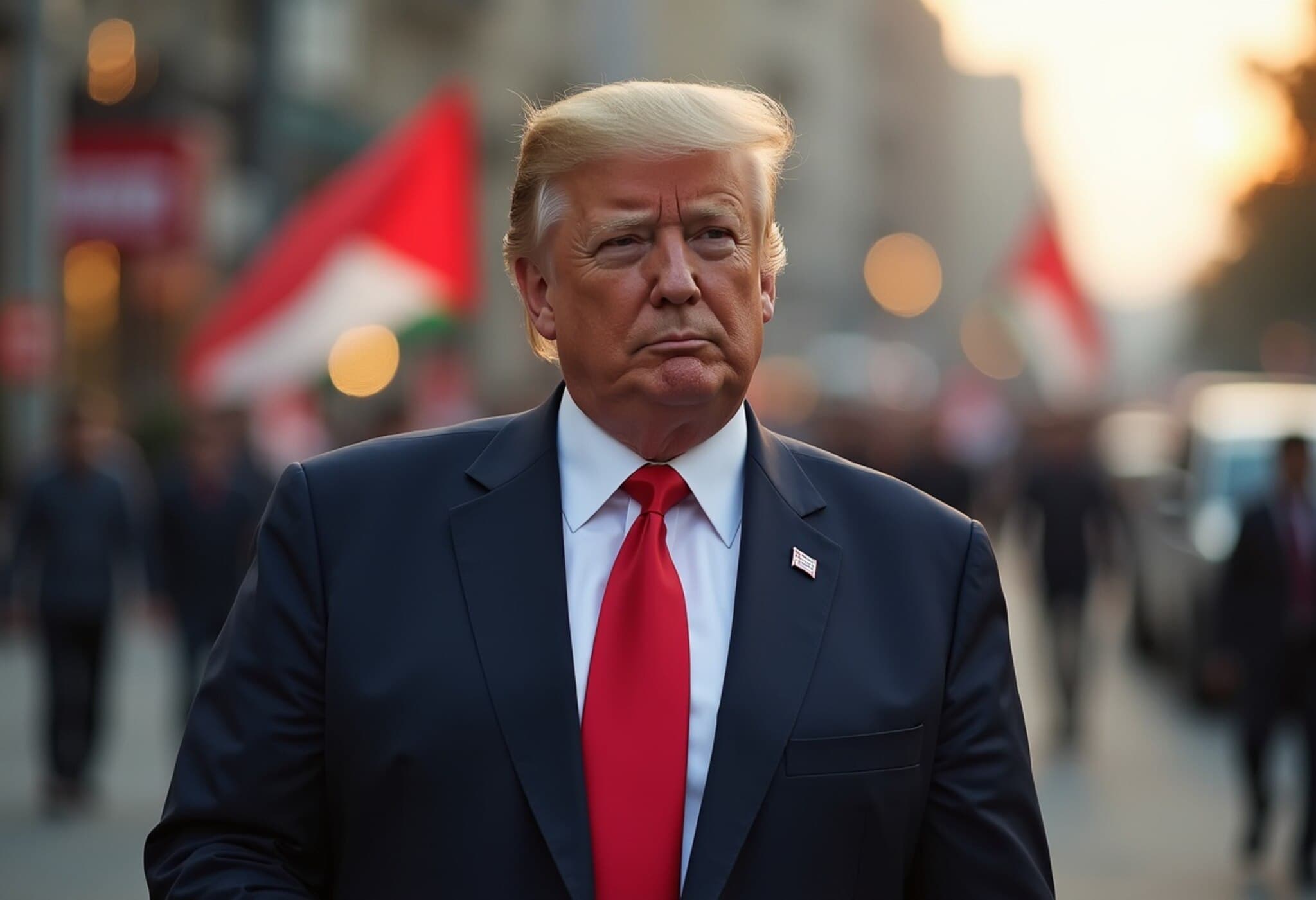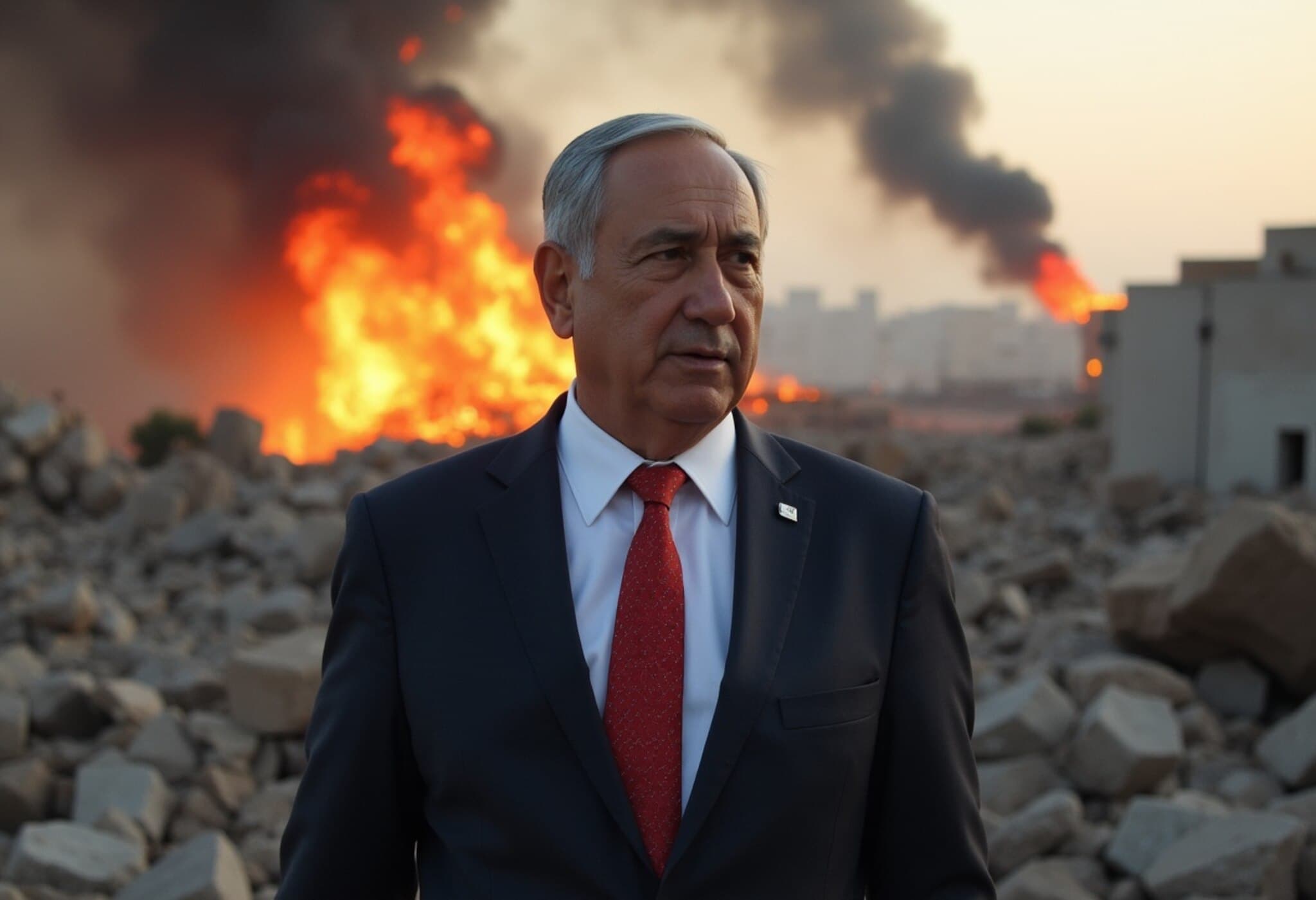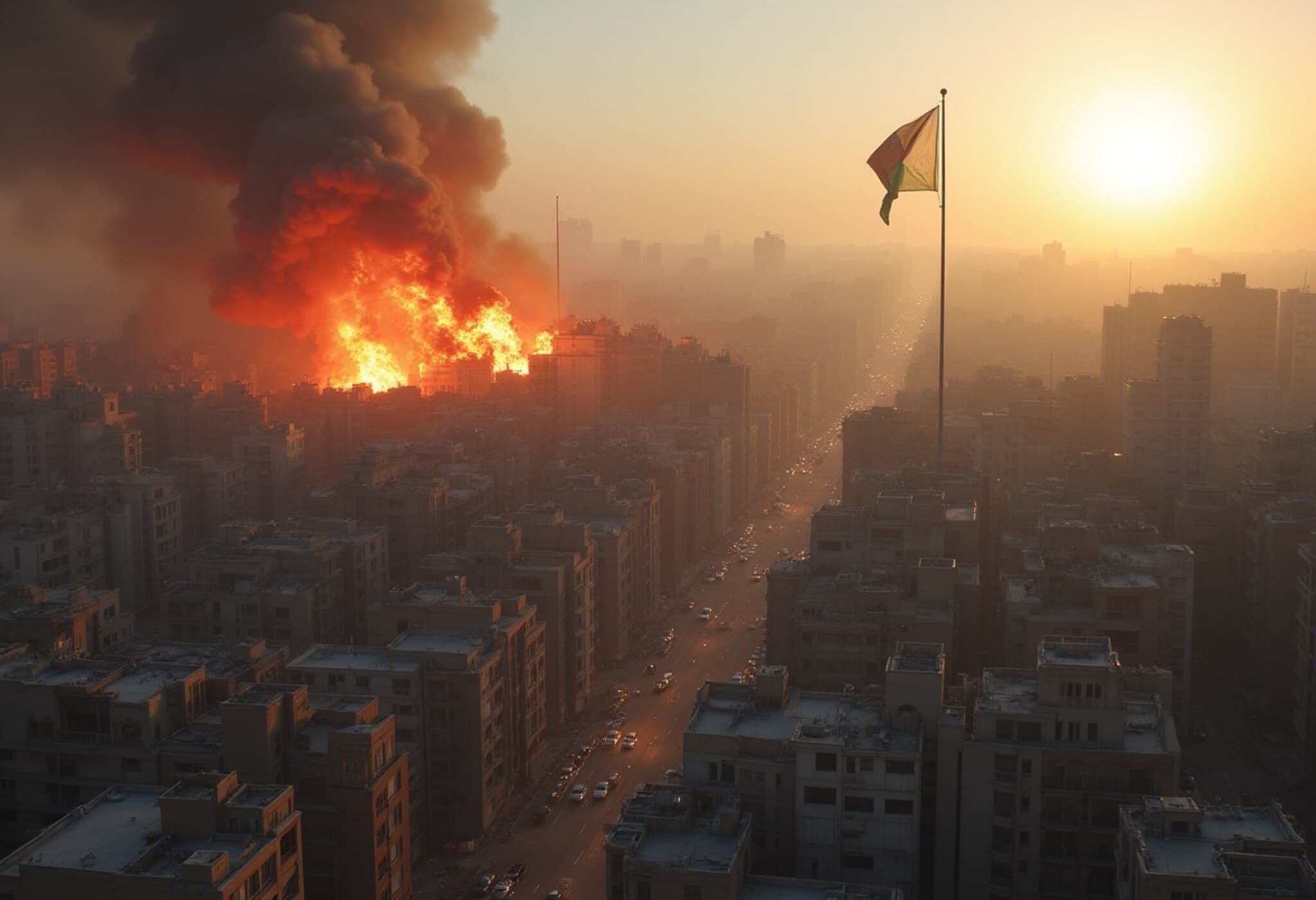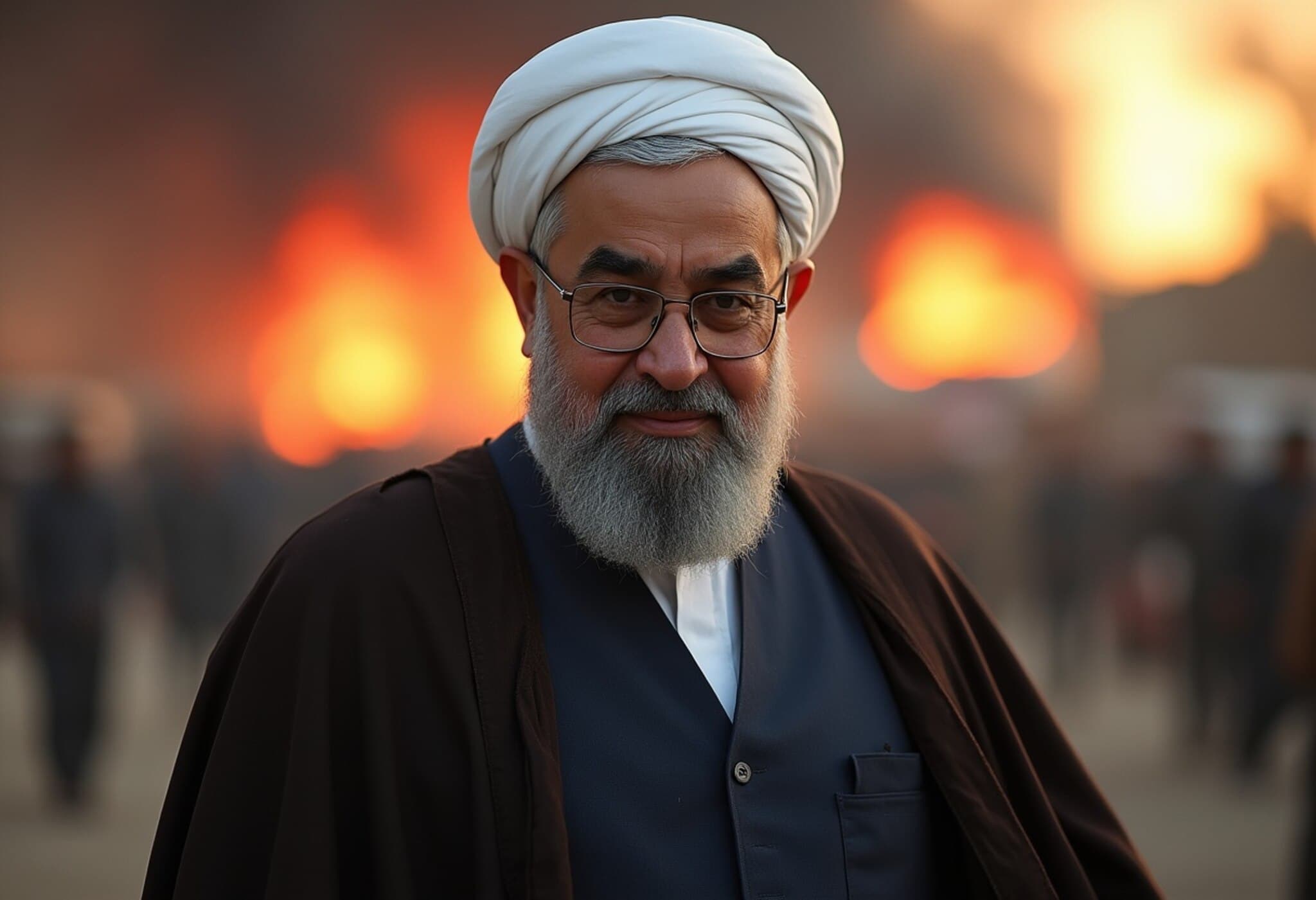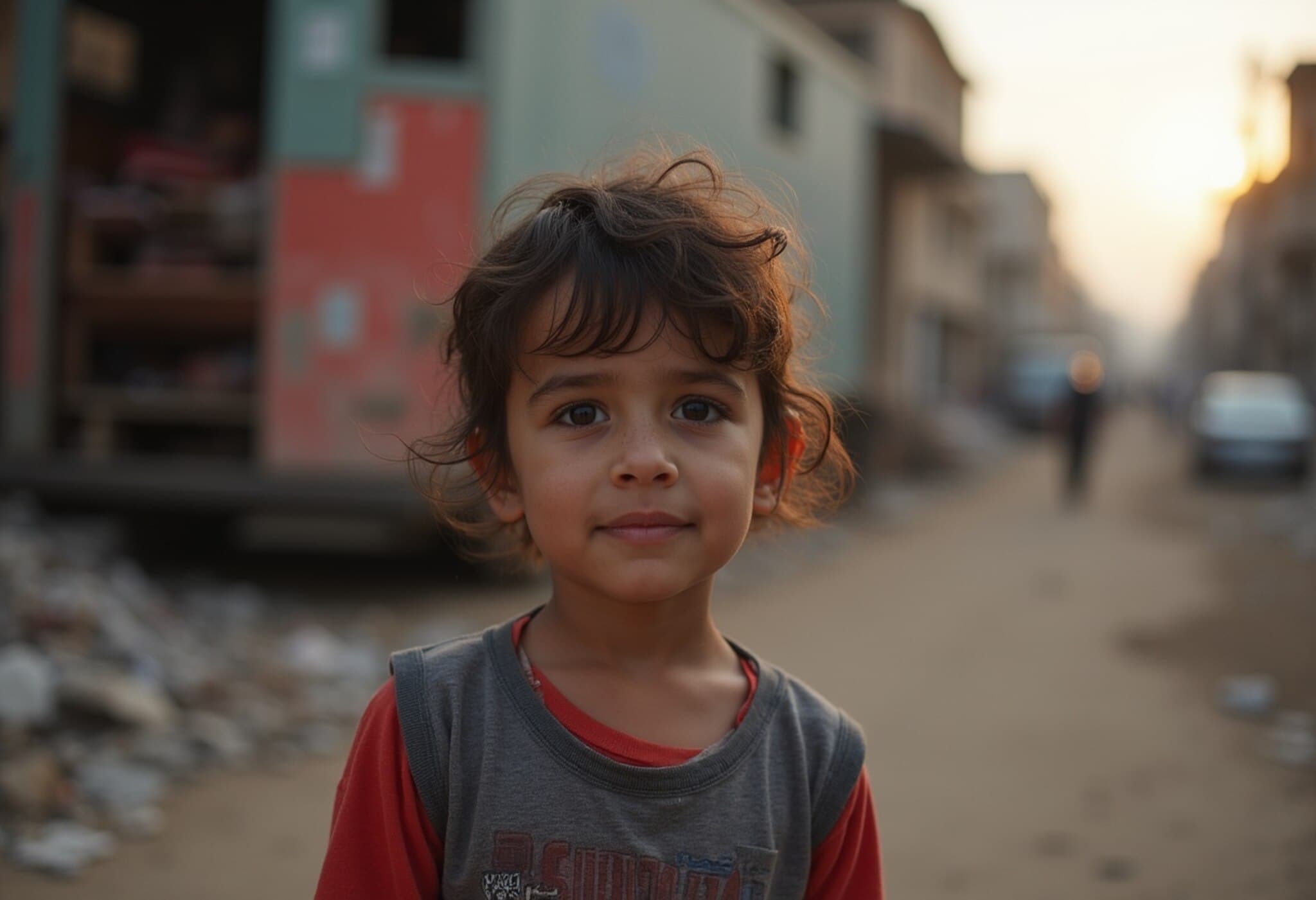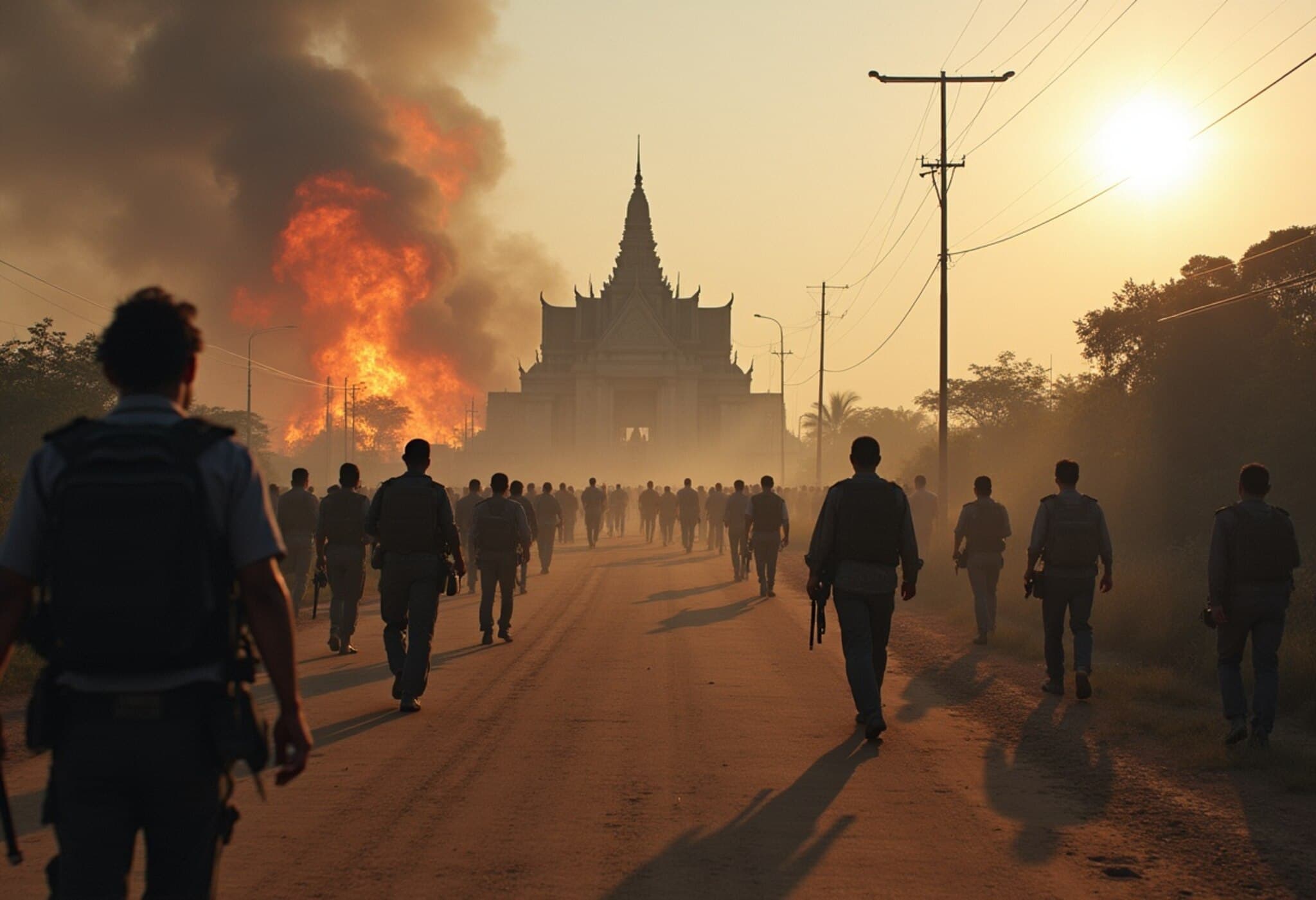Gaza Photojournalist's Heartbreaking Plea Highlights Dire Humanitarian Crisis
In a stark illustration of Gaza's unfolding humanitarian catastrophe, photojournalist Mohammed Abu Aoun has listed his camera and press shield for sale on LinkedIn, hoping to secure food for his starving family. His poignant message has reverberated globally, underscoring the grim realities faced by residents trapped in the besieged enclave.
From Capturing Conflict to Battling Hunger
Mohammed Abu Aoun, a seasoned photojournalist whose work has featured in The New York Times, ABC News, and Sky News, has been a frontline witness to the relentless violence and tension in Gaza. Having extensively covered the traumatic 11-day conflict flare-up with Israel last year, he has dedicated himself to telling the stories of Gaza’s people through powerful visuals.
Yet, it is not the cameras or accolades that weigh heaviest on him now. In his own words, "The hungry journalist conveys the voice of hungry children. We are dying of hunger." This haunting statement, paired with his decision to sell his professional gear, highlights the severe food scarcity gripping the region.
Gaza’s Looming Famine Amid Political Stalemate
The humanitarian crisis in Gaza escalates against the backdrop of stalled peace negotiations. Recently, US President Donald Trump indicated that Israel and the United States withdrew from talks with Hamas, citing the group’s reluctance to finalize a ceasefire and hostage release agreement. Hamas officials countered, pointing to ongoing dialogue with no publicized breakdown in progress.
As negotiations flounder, Gaza’s two million inhabitants face an increasingly bleak future. According to the United Nations World Food Program, nearly one in three Palestinians in Gaza endures days without food, with acute malnutrition rates rising sharply—particularly among children. Local health authorities report that childhood fatalities due to starvation have already occurred.
International Response and Limited Aid Efforts
In response to global outcry, Israel announced plans to permit humanitarian aid drops, coordinated by nations including Jordan and the United Arab Emirates. This intervention, managed by COGAT—the Israeli military's agency responsible for Gaza's humanitarian affairs—aims to alleviate suffering but falls short of meeting the enormous needs on the ground.
Experts caution that these airdrops are largely symbolic and insufficient to sustain Gaza’s population. The joint statement by the United Kingdom, France, and Germany encapsulates the urgency: "The humanitarian catastrophe that we are witnessing in Gaza must end now." Meanwhile, several international voices are urging a reevaluation of the blockade and restrictions exacerbating the crisis.
Why This Story Matters: Beyond the Headlines
- Humanizing the Conflict: Mohammed Abu Aoun’s personal ordeal brings a vivid, human face to Gaza’s crisis, reminding global audiences that beyond politics are real people struggling to survive.
- Press Freedom at Risk: The sale of essential journalistic tools underscores the precarious position of media workers in conflict zones, whose livelihood and safety are increasingly imperiled.
- Questioning Aid Strategies: The symbolic nature of humanitarian aid airdrops raises critical questions about international responsibility and the adequacy of current interventions.
- The Role of Media in Conflict Zones: Journalists like Abu Aoun play a crucial role in conveying truths from inaccessible areas, yet their challenges often go unnoticed by the wider world.
Editor’s Note
Mohammed Abu Aoun’s heartrending LinkedIn post is a stark reminder that amidst geopolitical disputes, the most vulnerable suffer silently. As global citizens and policymakers watch the Gaza conflict unfold, there is an urgent need to amplify voices like Abu Aoun’s—not only to highlight humanitarian relief needs but also to defend the essential work of journalists risking everything to tell these stories. The question remains: how can international actors move beyond temporary gestures towards sustainable solutions that address both immediate needs and long-term peace?

